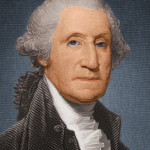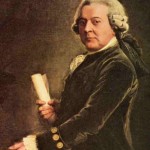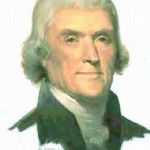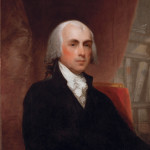By: Paul Rosenberg, Freemansperspective.com

What if your grandfather had gone on a wild spending binge, long before you were born, and put himself millions of dollars in debt to people who knew he could never pay? Would it be your obligation to work double-shifts all your life to pay that debt back? And if you died before paying it off, would it become your baby’s obligation?
I think most of us would answer those questions with a resounding “No way!” As well we should. We are not and should not be slaves to the past – slaves to actions we never took and for which we had no possible means of consent.
On September 6th, 1789, in the very first year of the US Constitution, Thomas Jefferson endorsed precisely this conclusion in a letter he wrote to James Madison:
I say, the earth belongs to each of these generations during its course, fully and in its own right. The second generation receives it clear of the debts and encumbrances of the first, the third of the second, and so on.
For if the first could charge it with a debt, then the earth would belong to the dead and not to the living generation.
He wrote the same thing to John Wayles Eppes twenty-four years later, in June of 1813:
The earth belongs to the living, not to the dead.
To lay debt upon the unborn is thoroughly immoral. To try to enforce such a debt is thoroughly criminal.
Your Child or Grandchild
This conversation is critically important, because each child born in the US is born massively indebted. Using $200 trillion to represent the promises already made to people now living (some estimates are higher) and assuming a population of 310 million, that comes to $645,161 of debt, by the time your child reaches his cradle. If you expect your child to become a productive person, his or her share will be roughly twice that amount, or approximately $1.3 million.
(The US government is not unique in this regard, by the way. I use the US example, because it’s easier and because most of my readers seem to be Americans.)
Would you sign papers loading your baby with such a debt?
I am stating these facts in personal terms to cut through the usual BS that passes for public discourse. I am also using the voices of “founding fathers,” partly because it undercuts the fraudulent government story that “we’re following the wisdom of the founders.” Beside, we’re talking about real persons here. Making it personal is not manipulative, but accurate. To make it amorphous would be manipulative.
And while I’m on the subject of founding fathers, here’s something George Washington wrote in a letter to James Madison, also in 1789:
No generation has a right to contract debts greater than can be paid off during the course of its own existence.
I think that’s a very clear and very moral expression. It is not, however, what has been done.
A group formed recently under the phrase, “Not our debt.” I know nothing about the group, but their phrase is entirely correct. The debt of the US government does not belong to us, and we have no moral obligation to repay it.
Most of us do pay something toward that debt (which grows exponentially, just the same), but we should stay very clear as to why we pay. That reason, of course, is naked force, as in coercion and violence. There is no morality to it, except the morality that some people might invent, either to salve their consciences or as sycophants to power. (Though most just do what everyone else does, never considering why.)
My advice is this: Do whatever you want as far as paying under threat, but don’t ever be confused about the morality of this situation. This is a swindle of gargantuan proportions. And that’s precisely what Thomas Jefferson believed. You can see this in a letter he wrote to John Taylor, dated May 28, 1816:
The principle of spending money to be paid by posterity, under the name of funding, is but swindling posterity on a large scale.
Do what you need to do, but don’t ever think you have a moral responsibility to pay that kind of debt.
Paul Rosenberg
[Editor’s Note: Paul Rosenberg is the outside-the-Matrix author of FreemansPerspective.com, a site dedicated to economic freedom, personal independence and privacy. He is also the author of The Great Calendar, a report that breaks down our complex world into an easy-to-understand model. Click here to get your free copy.]





